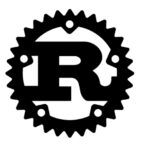
In the world of search engine optimization (SEO), technical SEO plays a crucial role in improving your website’s visibility and ranking in search engine results pages (SERPs). While content and keywords are essential, optimizing your website’s infrastructure is equally important. Technical SEO focuses on enhancing the technical aspects of your website to ensure search engines can crawl, index, and understand your content effectively. In this blog, we will explore the significance of technical SEO and provide insights into optimizing your website’s infrastructure for search engines.
Website Speed and Performance
Website speed is a critical factor in both user experience and SEO. Slow-loading websites not only frustrate users but also receive lower search engine rankings. To optimize your website’s speed and performance, consider techniques such as minimizing HTTP requests, compressing images, leveraging browser caching, and optimizing code. Additionally, ensure your web hosting is reliable and scalable to handle increased traffic.
Mobile-Friendly Design
With the rise of mobile internet usage, optimizing your website for mobile devices has become paramount. Google and other search engines prioritize mobile-friendly websites in their rankings. Adopt responsive web design, which dynamically adjusts the layout and content to fit different screen sizes. Test your website across various devices and use tools like Google’s Mobile-Friendly Test to identify and fix mobile compatibility issues.
Website Structure and Navigation
A well-structured and intuitive website architecture benefits both users and search engines. Organize your content into logical categories and subcategories, utilizing proper URL structures and breadcrumb navigation. Create an XML sitemap to help search engines crawl and index your site more efficiently. Incorporate internal linking to guide users and search engines to relevant pages and distribute link authority throughout your website.
URL Optimization and Canonicalization
URLs should be concise, descriptive, and keyword-rich. Avoid long, complex URLs that are difficult to understand or remember. Canonicalization is crucial for avoiding duplicate content issues. Set preferred URLs for your pages to consolidate ranking signals and avoid dilution. Use canonical tags to indicate the primary version of a page when multiple URLs have similar or identical content.
Schema Markup and Structured Data
Implementing schema markup and structured data on your website helps search engines understand and display your content in a more informative and visually appealing way. Schema markup provides additional context to your content, making it easier for search engines to determine relevance and display rich snippets in search results. Utilize schema markup for events, products, reviews, articles, and other relevant data.
XML Sitemap and Robots.txt Optimization
An XML sitemap is a roadmap of your website, listing all the pages you want search engines to crawl and index. Regularly update and submit your XML sitemap to search engines to ensure they have the latest information about your site’s structure. On the other hand, the robots.txt file guides search engine crawlers on which parts of your website to access or exclude. Optimize your robots.txt file to control crawler access and ensure privacy for sensitive pages.
Website Security and HTTPS
Website security is essential for both user trust and SEO. Switching to HTTPS (secure protocol) encrypts data transmitted between users and your website, protecting user privacy. Google considers HTTPS as a ranking signal, and websites with secure connections tend to receive a slight ranking boost. Install an SSL certificate and configure your website to redirect HTTP to HTTPS for a secure browsing experience.
Conclusion
Technical SEO is the foundation upon which your website’s visibility and search engine rankings are built. By optimizing your website’s infrastructure, including speed, mobile-friendliness, navigation, URLs, schema markup, sitemaps, and security, you provide search engines with a clear understanding of your content and ensure a seamless user experience. Prioritize technical SEO alongside
content and keyword optimization to maximize your website’s potential in search engine rankings. Remember to regularly monitor and analyze your website’s performance using tools like Google Search Console and Google Analytics to identify and address any technical issues that may arise.
By investing time and effort into technical SEO, you can lay a solid foundation for your website’s online presence, improve its crawlability and indexability, and enhance user experience. Technical SEO is an ongoing process, and staying updated with the latest industry best practices and algorithm changes is crucial to maintaining a competitive edge.
So, don’t overlook the technical aspects of your website. Incorporate these optimization strategies and ensure that your website’s infrastructure is search engine-friendly. By harnessing the power of technical SEO, you can increase your chances of higher rankings, improved visibility, and ultimately, attract more organic traffic to your website.













































Recent Comments